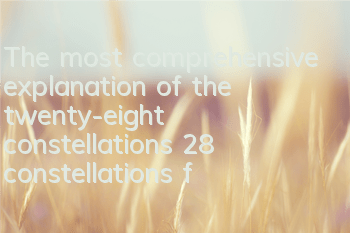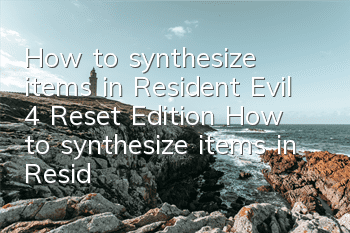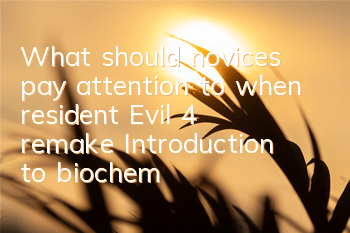Twenty-Eight Constellations, Detailed explanation of 28 Constellations and Constellations
The Twenty-Eight Constellations are the twenty-eight star regions divided by ancient Chinese astronomers to observe the movement of the sun, moon and five stars. They are the local astronomy creation in my country. Used to indicate the location where the sun, moon and five stars move. The details are as follows:
Detailed explanation of the 28 Constellation map and constellation
The Twenty-Eight Constellations are the twenty-eight star regions divided by ancient Chinese astronomers to observe the movement of the sun, moon and five stars. They are the local astronomy creation in my country. Used to indicate the location where the sun, moon and five stars move. The details are as follows:
Twenty-Eight Constellations:
The seven constellations of the East Green Dragon: jiao, kang, di (dī), room, heart, tail, and ji (jī)
The seven constellations of the northern Xuanwu: Dou (dǒu), cow, girl, empty, dangerous, room, wall
The seven constellations of the Western White Tiger: Kui, Lou, Wei, Mao, Bi, Jue, and Shen
Seven Constellations of the Southern Suzaku: Well, Gui, Liu, Xing, Zhang, Yi, Zhen (zhěn)
Each sink contains several stars. As one of the important components of Chinese traditional culture, it was widely used in ancient astronomy, religion, literature, astrology, astrology, Feng Shui, auspiciousness selection and other techniques.
The name of the twenty-eight constellations:
Seven Constellations of the East Green Dragon: Kok, Kang, Di, Fang, Heart, Tai, Ji (jī)
The seven constellations of the northern Xuanwu: Dou (dǒu), cow, girl, empty, dangerous, room, wall
The seven constellations of the Western White Tiger: Kui, Lou, Wei, Mao, Bi, Jue, and Shen
Seven Constellations of the Southern Suzaku: Well, Gui, Liu, Xing, Zhang, Yi, Zhen (zhěn)
The correspondence between the twenty-eight constellations and the twelve earthly branches
The earthly branches are the most core content of ancient Chinese astronomy and the most important symbol of ancient Chinese astronomy. The origin of the Earthly Branches is another way of expression in the ancient twenty-eight constellations. The method of creating the earthly branches is to use the symbols of the twenty-eight constellations.
The twenty-eight constellations start from the corner constellations and are arranged from west to east, opposite to the direction of the sun and moon vision movement:
The green dragon in the east is called: horned wood dragon, kang golden dragon, ditu raccoon, house-river rabbit, heart moon fox, tail fire tiger, Jishui leopard;
The northern part is called Xuanwu: Doumu Pig, cow, ox and ox, female earth bat, Xuri Rat, dangerous moon swallow, room fire pig, wall water boar;
West known as white tigers: Kuimulang, Loujindog, stomach pheasant, Maori chicken, Biyuewu, Wuhuo, Huohuo monkey, and Shenshui ape;
The south is called Zhuque: well wood bark, ghost gold sheep, willow earth deer, starry horse, Zhang Yuelu, winged fire snake, and Zhenshui worm.
The Seventh Constellation in the North is based on the "Night Ship" compiled by Zhang Dai in the Ming Dynasty. It is a water squid (the opposite dog radical, a Yu on the right).), pronounced as "Rain"
Observation Method
There are four common methods of observing the appearance of twenty-eight constellations in ancient times:
The first is to observe the stars rising on the eastern horizon when the night falls after dusk and sunset, which is called "Dunning";
The second is to observe the stars in the south middle sky at this time, which is called "Dunzhong";
The third is to observe the stars rising on the eastern horizon when the night is about to fall before dawn, which is called "morning sight" or "heading";
The fourth is to observe the stars in the sky in the south at this time, which is called "Danzhong".
In ancient times, in order to facilitate the observation of the sun, moon and the five major planets [gold, wood, water, fire, and earth], people selected twenty-eight constellations near the yellow and equator as symbols, collectively known as the twenty-eight constellations, or the twenty-eight constellations. The seven constellations form the image of a dragon. The vernal equinox is in the sky in the east, so it is called the seven constellations of the east; Dou, Niu, Nu, Xu, Wei, Shi, and Bi. These seven constellations form a group of turtles and snakes entangled. The vernal equinox is in the sky in the north, so it is called the seven constellations of the northern Xuanwu Constellations; Kui, Lou, Wei, Mao, Bi, Ju, and Shen. These seven constellations form the image of a tiger. The vernal equinox is in the sky in the west, so it is called the seven constellations of the west; Jing, Gui, Liu, Xing, Zhang, Yi, and Zhen. These seven constellations form the image of a bird. The vernal equinox is in the sky in the south, so it is called the seven constellations of the south. The images of the four animals composed of the above seven constellations are collectively called the Four Symbols, Four Dimensions, and Four Beasts. The ancient people used the appearance and time of each sign and the arrival of the middle heaven among these four signs and the twenty-eight constellations to determine the season. The ancients looked at the direction of the solar terms in the south, so there was the saying that the green dragon on the left east, the white tiger on the right west, the black trunk on the back north, and the vermilion bird on the front south.
"Huainanzi·Astronomy" divides the twenty-eight constellations into nine fields:
Central Juntian: Jiaosu, Kangsu, Disu
Oriental Cangtian: Fangsu, Xinsu, Weisu
Northeast changes the sky: Jisu, Dousu, Niusu
Northern Xuantian: Female Suit, Void Suit, Wei Suit, Room Suit
Northwest Youtian: Bisu, Kuisu, Lousu
Western Haotian: Weisu, Pleiades, Bisu
Southwest Zhu Tian: Viagra, Betelgeuse, Jingsu
Southern Yantian: Guisu, Liusu, Xingsu
Southeast Yangtian: Zhangsu, Yisu, Zhensu
Seven Constellations in the East
(Jiu, Kang, Di, Fang, Heart, Tai, Ji)
The seven constellations in the east include horns, kang, di, room, heart, tail, and ji. It is the product of the combination of ancient Chinese mythology and astronomy. The ancients felt that the positions of stars remain unchanged for a long time, so they can be used as signs to illustrate the locations where the sun, moon and five stars move. After long-term observation, ancient Chinese astronomers successively selected twenty-eight constellations near the ecliptic equator as coordinates. Because they are arranged in the four directions of the sun, the moon, and the five stars,It is a place where the sun, moon and five stars live together, so it is called the Twenty-Eight Constellations. It is also divided into four palaces according to its direction, season and four symbols, including east, south, west and north. Each palace has seven constellations. The seven constellations belonging to each palace are imagined as an animal, thinking that it is "the four spirits of the sky, which are directed to the four directions."
Seven Constellations in the North
〔Fighting, cow, female, empty, dangerous, room, wall〕
The seven constellations in the north have a total of 65 constellations and more than 800 stars. They form the image of snakes and turtles, so they are called Xuanwu. The Seven Constellations Dou Su is the head of the northern Xuanwu Yuan Turtle. It consists of six stars and looks like a Dou. It is generally called the Nandou. Together with the Beidou, it controls the power of life and death, and is also called the Tianmiao.
The Niu stays in the six stars, and looks like a cow's horns. The female star stays in the four stars, and the shape is also like a sliver.
The virtual host star is the virtual star, one of the four stars of Yaodian, also known as the Tianjie, which is quite ominous.
The ancient star of Void is the master of autumn, which contains the image of solemn death. All things wither and fall, which is really a sad and heartbreaking.
There are grave signs, empty beam signs, and built house signs in the dangerous place, which are also ominous, reflecting the uneasiness of the ancients in the late autumn winter. Shisu is also known as Xuangong, Qingmiao, and Xuanming (Water God). Its appearance tells people to strengthen the house and room to survive the severe winter. The walls and room dwellings are similar, and may mean strengthening the courtyard wall. The Xuanwu Star in the north has a very high status. There was the Zhenwu Temple (outside the Fuxingmen) in Beijing, which was worshipped by Emperor Zhenwu.
Seven Western Constellations
〔Kui, Lou, Wei, Mao, Bi, Ju, Shen〕
There are fifty-four constellations in the seven constellations in the West, with more than 700 stars, and they form the white tiger pattern.
Kuisu is composed of sixteen stars that are not very bright, shaped like a sole of the shoe, and it is considered the mouth of the White Tiger God.
Lou Su three stars, nearby are zodiac signs such as Left Gate, Right Gate, Tiancang, and Tianda General.
The three stars of Wei Su are close together, and there are constellations such as Tianlin, Tianchuan, Jizhen, Jishui, etc. nearby.
It seems that the appetite is too small to digest so much food, and it is a bit indigestion.
The Pleiades is the famous Pleiades star cluster. There are many myths and legends about it. There are rolled tongues in the Pleiades.
The star of Tianyan seems to mean that disaster comes from the mouth. The eight stars in the sky are like fork claws,
In ancient times, those with small nets and long handles were called Bi. Bi Xing was also known as the Rain Master (Ji Xing was Feng Bo), also known as Pingyi, Xiaoping, and Xuanming (same as Shi Su); in our country, Bi Su was regarded as the Rain Star. The Seoul Samsung leaned almost completely together, and it was a little bit of a cherry mouth. The star Betelgeuse has three stars in the middle, with two stars on each side. The seven stars are very bright and very conspicuous in the sky. It is exactly opposite to the Big Mars. Today we call different opinions as opinions on the Shang Dynasty, and brothers are not in harmony with each other because they are not in harmony with each other, which all originate from this.
Seven Constellations in the South
The seven constellations in the south are Jing, Gui, Liu, Xing, Zhang, Yi and Zhen, with forty-two constellations,
More than five hundred stars, its image is a vermilion bird flying with wings spreading its vertebrate.
The eight stars in the well are like wells, called Gemini in the West, and are nearby constellations such as Beihe, Nanhe (i.e. Little Dog sign), Jishui, and Shuifu. The four stars of the ghost are said to accumulate horses and soldiers,
One tube of cloth accumulates, another tube of gold and jade accumulates, and there are also constellations such as Tiangou, Tianshe, and Outer Kitchen nearby. The willows are surrounded by eight stars, shaped like weeping willows, and it is the mouth of the Vermillion Bird. The seven stars of the stars are the neck of the Vermilion Bird, and the seventeen stars of Xuanyuan are nearby. Zhang Su's six stars are the sacred leaves of Zhuque, and there are fourteen stars in Tianmiao nearby. The twenty-two stars of Yishou are considered the wings and tail of the Vermilion Bird. The four stars of Zhensu are also called Tianche. The four stars are in the middle, with two stars on the left and right next to them, which is "the image of a car".
——Star Constellation Commentary—
Seven Constellations in the East
Jiao Su is sincere and harmonious, has a deep blessing, is approachable and does not care about details, has rich life experience, is good at decision-making, and is orderly. If you are too self-centered, you will easily cause troubles and be stubborn.
Kang Su makes smart decisions, is persuasive, has poor planning, is easy to act in a state of mind, has fighting spirit but has repetitive luck, and is prone to impulsive temper. Often lose money due to arrogance and vanity.
Di Su is understanding, easy to get help from others, good at strategy, versatile and ambitious, and decisive in his actions. Often they appear wandering because they are unwilling to be bound.
Fang Su is born lucky and rich, and needs to be down-to-earth. Otherwise, the pain of climbing high and falling, so you should keep a low profile to avoid jealousy. Being accustomed to being arrogant and impetuous can make achievements in your career.
The heart is firm and diligent, avoids evil and promotes good, is not afraid of hardship, is positive and has a sense of justice, and is the capable. The shortcomings are that they are too suspicious, which can sometimes hinder the development of talents and career development.
Weisu is serious, capable and cautious, likes competition, and pays attention to cultivation and connotation in order to achieve wealth. What to note: It is cool on the outside and heat on the inside, which can easily backfire and bring the opposite effect.
Ji Su is wise and capable, not afraid of authority, and is unrestrained and enjoymentists, and will not be pessimistic when encountering setbacks. If your thoughts are too open, in today's society, it can make your family's concept weak, which is something that should be paid attention to.
Seven Constellations in the North
Fighting in the fight will be strong, and when facing the weak, it will be weak. Emotional changes will be great, and you have the power to break through adversity and are creative. A person who is deeply hidden is easy to attract misunderstandings and requires a calm heart.
Niu Su has a strong sense of self-esteem, is fond of fighting for strength, and is not willing to give in. Facing strong competitors, he is more energetic, talented, and does not use scheming methods. He is a down-to-earth, hardworking and doing things step by step. He will not express his feelings in normal times.
The girl is willing to help others, suitable for learning specialized skills, quick thinking, and will work hard for her own beliefs. The reason for frustration is often because of strong personality, lack of emotion, or being too frank.
Xu Su is born with wealth and honor, has good popularity, has tenacious endurance, is interested in metaphysics, and is curious. But becauseSubjectively, strong love for disputes, and suppress your own spirit.
There is easy to be impatient, have a tough temperament, be kind and have no scheming, and are prone to suffer losses in interpersonal relationships. The two extremes of good or bad are more obvious, because you have strength and it depends on the direction you grasp.
Shi Su is mighty and strong, has fighting spirit and competitive spirit, is positive and optimistic, and has a strong desire. The disadvantage is that you walk alone with your broken arm, you are frivolous and impatient, you need to think carefully and know how to be gentle. Excessive boldness will lead to failure.
The man is introverted and calm, has a close mind, and is careful in his work. He is trusted by his superiors, but his popularity is not good. Stubbornness and withdrawal will make the original sense of justice not understood by others. It is best to stay away from right and wrong and avoid verbal talk.
Seven Western Constellations
Kuisu has rich feelings, is honest, friendly and enthusiastic, and pursues truth, goodness and beauty. He will be lucky in life. Lack of courage and endurance, as long as you let go of your stubbornness, happiness will be around you.
Lou Su is quick-thinking, efficient in work, full of energy, strong desire for knowledge, and willing to help others. If you have the willful and rebellious subconscious, if you show your cold side, it will enhance the color of your personal idea.
Wei Su is strong and unyielding, and can rise to the top with his indomitable spirit, but it is also because of his coldness and ruthlessness, which leads to a life of ups and downs. Only by working hard to establish interpersonal relationships can we be more competitive.
Pleiades is generous, kind, diligent and studious, eloquent, and hard and soft. However, it lacks wit, has a strong inner personality, and the more outstanding the ability, the more modest you should treat others.
Bi Su is firm, steady, peaceful and harmonious, and must be more idealistic and wealthy and understand planning. You should pay attention to improving your ability to adapt to things and do things at the beginning and end so that you will not be considered a master.
The monk is cautious in his words and deeds, pays attention to principles, is good at expressing himself, does not like violence, and is kind and loving. The flaw is that excessive self-confidence is easy to make enemies, and failures are caused by the restraint of popularity.
Betassium has the ability to keep its promises, remain calm in the face of danger, lacks patience, is prone to impulsiveness, and has the meaning of rebellion or distractedness. If you can't help others' criticism and accusations, it will lead to an isolated situation.
Seven Constellations in the South
Jing Suzhong has a relationship, is funny and humorous, loyal by nature, and is a person with a temperament, with a dual personality, cheerful and calm. It’s just that sometimes I don’t know how to adapt because I have too strong self-esteem.
Ghost Su is approachable, righteous, easy to welcome, rich emotions, and has great changes in his life. You can quickly forget unpleasant things, hate being bound by others, and lack of endurance is easy to lose opportunities.
Liu Su has a clear distinction between good and evil, and has a strong personality. Once he gets angry, he should be cautious about being deceived due to impulse. If you are gentle and easy-going on the surface, arrogant on the inside, and often self-centered, it will lead to separation and isolation.
Stars are talented, hardworking, and yearn for freedom and change, and are a late bloomer. Because of his high personality and not being able to flatter and flatter, it is easy to cause poor popularity and influence one's ability toplay.
Zhang Su knows how to like, has strategies, attaches importance to a comfortable life, and likes to study and learn. If you remain competitive, you will have constant ups and downs throughout your life. If you have the conditions for success, you must seize the opportunity.
Yisu has an artistic temperament, does not like competition, is intoxicated by his own world, and usually has gained something from developing in other places. Because of its strong subjectivity and sharp words, it is easy to cause right and wrong or misunderstandings.
Zhensu is quick-witted, has strong adaptability, is steady and connotative, and likes to hide deeply and can accomplish great things. Because of its low-key relationship, it is more suitable to be behind the scenes or engage in decision-making work.
——Song of the Twenty-Eight Constellations on Duty to Wind, Rain, Cloudy and Sunny——
Spring
The walls of the void room are full of wind and rain. If you meet Kui Xing, the sky is clear,
The windy weather of Louweiwu is frozen, and the gentle weather of Maobi is bright and bright.
The sun is seen in the sun when the ghost is seen in the well, the sun is still clear when the stars are star and the wings are still bright,
There is little rain in the sky between the two stars of Zhenjiao, and the wind and clouds may rise and walk along the ridge,
The strong wind blows sand and stones, the sound of the wind at the heart of the difang,
The sky is raining, and the cow girl makes a slight sound of rain.
Summer
The sky is half cloudy in the room, and the stomach is raining in the dark,
There is rain in the two constellations of the Plum Bi, and the two constellations of the Plum Bi are cloudy.
The well ghost Liu Xingqing may be sunny or rainy, and Zhang Xingyi Zhen will be sunny and bright,
The two stars of the jiao Kang show the sun, and the two rooms of the Difang are heavy rain and wind,
The heart is still raining, and the bullfighter meets the sky.
Autumn
The wall of the room is shocked by thunder, Kuilou's stomach, Mao's rain, Linting,
Bi Weizan well is sunny and rainy, and the ghost willow clouds open and the guests go away,
The star Zhang Yizhen has no rain, and the two stars Jiao Kang sounds wind and rain,
There will be rain at the end of the heart of the Difang, and the bullfighter will be in the rain.
Winter
The walls of the void room are full of wind and rain. If you meet Kui Xing, the sky is clear,
The weather is frozen when the rain sounds like Louwei, and the weather is sunny again during the period of the Pak,
When the two constellations are sitting in the sun, the two stars of the well ghost are yellow in the sky,
Don't say that the clouds of Liuxing rise, the cold wind and rain are severe frost,
Zhang Yi's wind and rain are sun again, Zhenjiao's night rain is still sunny,
The strong wind blows sand and stones, the sound of the wind at the heart of the difang,
There is raining in the sky between the two stars of Jido, and the cow girl is sunny and sunny.
The true secret of divination, the secret of immortals and wise men is not worthy of their reputation,
The wheel on the palm of your hand responds to the sky, and the universe and the sun are determined.
——The Name of the Constellation——
Zhang Heng's "Lingxian": "The blue dragon curled up on the left, the white tiger firmly held on the right, the Vermillion Bird wings in front, and the spiritual turtle rings in the back."
Dongguan Qinglong
Horse, dragon horn. The ecliptic passes through these two stars, so the sun, moon and planets often pass near these two stars.In ancient books, the two stars of the jiao are called Tianguan or Tianmen.
Kang is the throat of the dragon. "Er Ya Shi Bird" says: "Kang, bird's throat", and the notes say: "Kang means swallowing, common sayings."
Di, "Shuowen": "Di is the way; according to the clan, the lower part is -, -, which is the earth." "Er Ya Shi Tian": "The root of the sky is Di." The notes say: "The horn is the lower part of the kang, like the root of the wood." Therefore, Di can be understood as the front foot of the dragon.
The room is a chest room. "Records of the Grand Historian": "The house is the palace, and the sky is the four." The palace is connected to the internal organs. "Er Ya Shi Tian": "Tian Si is a house." Note: "The dragon is a Tian horse, so the four stars in the house are called Tian Si."
The heart is the dragon heart. The heart star is the famous heart-sacred alpha (Scorpio alpha), which was called fire, fire, or Shang star in ancient times.
The tail is the dragon's tail. "Zuo Zhuan": "The nursery rhyme says 'The morning of Bing, the dragon's tail is hidden in Chen'", the note says: "The dragon's tail is the tail star. The meeting of the sun and the moon is Chen, and the sun is at the tail, so the tail star cannot be seen."
The pan, which looks like a dustpan. "Shi Xiaoya": "There is a sliver in the south of the country, so it cannot be shaken." It refers to it.
Western Office White Tiger
Kui, "Shuowen": "between the two thighs", "Guangya": "Hub is Kui." Kui stays on the sixteen stars, and the left and right halves are just like the shape of two thighs. In "Bu Tian Song", Kui Su is described as: "The waist is thin and the head is pointed like a broken shoe, and sixteen stars are surrounded by shoes."
Lou, Tonghu. Hu, "Shuowen": "Yiju", "Jiyun": "Yiju, commonly written as Lou", "Gongyang": "Niu Ma Wei Lou", the notes say: "It is called Wei, and it is called Lou." "Records of the Grand Historian": "Lou is to gather people." In ancient astronomical books, Lou Su was regarded as a place where she was in charge of pastoral sacrifice or gathering troops.
The stomach, "Shi Ming": "The stomach is circumference, and it is circumference and food." "Records of the Grand Historian": "The stomach is celestial clay."
Suo, "Records of the Grand Historian": "Suo is called Mao's head", "Shuo": "Fai". Subaru is also called Liu, which means clustering and dependent. The ancients used the Pleiades to determine the four seasons. "Shangshu Yao Dian": "The sun is short and the stars are pink, and it is mid-winter." This means that if you see the Pleiades in the middle of the sky at sunset, you can know that the winter solstice has arrived.
Bi, "Yi Li": "The clan people first came to Bi first", and the note says: "Bi's appearance is as good as Yi". "Shi Xiaoya": "There is a sign of heaven", Zhu Xi's note: "The sky is a sign of stars, and it looks like a rabbit is covered with." The Book of Heavenly Officials in the Grand Historian says: "The Pleiades is the street of heaven", which means that the sun, moon and planets often pass here, and Mercury is located between these two constellations. The Book of Songs says: "The moon leaves the end and makes it rain." It refers to the arrival of the rainy season when the moon passes by.
Gumang, "The Song of the West": "The seven stars in Betel-Green are bright and candles, with two shoulders, two feet and three waists." This shows how eye-catching Betelgeuse is in the night sky. From winter to early summer of the following year, Betelgeuse is the most eye-catching constellation in the night sky. "Tang Feng": "Three stars are ginseng." The ginseng is a pictographic way of writing, symbolizing the belt three stars. "Zuo Zhuan" uploaded: "Gaoxin had two sons in the past.Bo is called Yan Bo, Ji is called Shishen, who lives in a vast forest and cannot be able to do it. Looking for wars every day to fight each other. The Later Emperor was not virtuous and moved to Shangqiu to control Chen. The merchant is because Chen is the Shang star. It was moved to Daxia, mainly for ginseng. "Chen means the Xin Su, and the right aid of Betelgeuse and Xin Su, are about 180 degrees apart. People in the same place cannot see them at the same time, so there is a saying among the people that "Shen and Shang will not meet each other."
在, "Shuowen": "The horn on the head is the horn on the head", and the note says: "The feather tribe is sharp, so the bird is called "在在." The three small stars of the Betelgeuse are located above the shoulders of Betelgeuse, and their shape can be related to the horn-shaped bird's beak, hence the name.
Note: The main reference book is "History of Observation of Chinese Stars" by Pan Nai. I won’t write more about how to observe these constellations at different places and different times. Interested friends can use skymap.
Beiguan Xuanwu
Dou, also known as Nandou. Like the Big Dipper, the six stars in the sky are also very similar to Dou, hence the name, but the range and brightness of the Big Dipper are less than that of Beidou.
The ox was called the ox in ancient times; the ox was called the ox in ancient times; the ox was called the wu girl or the ox in ancient times. It is said that Niu Su and Nu Su's names were transferred from the two stars Niu Lang and Weaver Girl. In 1978, the tomb of Zeng Houyi from the early Warring States Period was excavated in Sui County, Hubei Province. Among the unearthed cultural relics, there is a lacquer box, and the cover of the box contains the names of the twenty-eight constellations in seal scripts. Among them, the second constellation of the cow and the second constellation of the female constellation was written as the Qianniu and the Wunv. It can be seen that the names of these two constellations have a long history. The Book of Rites and Monthly Orders says: "The moon in the morning...Danwu Girls' Middle School." It means that if you see the position of the girl in the middle of the south at dawn, you will know that early summer is coming.
Xu, "Shuowen": "Qiu is called Xu." In ancient times, cities were often lived in hills. After the city was destroyed, hills were renamed Xu. Xu is located in the center of the Northern Officials. "Er Ya Shi Tian": "Xuan is Xu." The notes say: "Xu is in the north, and the north is black. The words of Wu Zi are consumed, and the consumption is also empty." Therefore, Xu has a large hill, so the meaning of land and waste. Xusu was quite famous in ancient times. Among the four Zhongzhong stars recorded in the "Shangshu Yaodian" written in the Zhou Dynasty, there was Xusu. "The star in the night is Xu, and Yin Zhongqiu." At that time, Xusu appeared in the middle of the south in the evening around the autumnal equinox. The line from Niu Su Er to Nu Su Yi made an imaginary connection, and it was extended by about one and a half times. The third-class star I encountered was Xu Su Yi.
日 means above the house. "Records of the Grand Historian Suoyin" quoted "The Book of Rites" as saying: "The house in the middle is dangerous, and the house is raised to avoid soldiers." "Records of the Grand Historian": "The house is built by a dangerous house." "The Book of Jin Dynasty": "The three stars are dangerous, and the house is built by the Tianfu market." The shape of the three stars is like a pointed roof.
The chamber and the wall are two connected halls. It was known as the camp room and the east wall. The camp was originally four stars, which were square, with two stars in the east wall and two stars in the west wall, just like the image of a palace. "Zhou Guanziren": "The turtle and snake travel four times to embody the camp room." Later, the east wall was separated from the camp room and became a room with two walls. The cover of Zeng Hou Yi’s tomb lacquer box is called Xiying and Dongying. The four stars on the east wall and the west wall are the famous Pegasus quadrilateral. "Poems?#123; Feng": "In the fixed direction, it is built in the Chu Palace." In the Spring and Autumn Period, the room appeared in the evening of late autumn and early winter. It was the slack season in the south. People used this period of time to build houses to prepare for winter. Therefore, it is known as the barracks. The line between the two to the two and the one to the one and the one to the one to find the approximate location of the Spring Equinox.
Southern Guan Zhuque
Well, "Records of the Grand Historian": "The East Well is a water event", the shape of the well is like a water well, hence the name. Jingsu belongs to Gemini, Jingsu is located between the Beihe River and Betelgeuse. This is a way to find Jingsu.
Ghost, also known as chariot ghost. Yu, "Jiyun": "Zhong": "Zhong", so Yugui can be understood as the meaning of many ghosts; "Shuowen": "Yugui is the bottom of the car", the four stars of the ghost are square, like a car, which may be another meaning. "The Song of Bu Tian": "The four-star book is like a wooden cabinet, and the white one in the center accumulates corpse energy." "The Guan Xiang Wanzhan": "The white one in the center of the ghost is like pink trousers, which is called accumulating corpse energy. One is called the heavenly corpse, which is the main cause of death and mourning the temple."
Lu, originally named Wu, means bird beak, which is similar to the meaning of horns as dragon horns. "Er Ya Shi Tian": "The sacred is called willow, willow, and quail fire", and the notes are called "quail, the name of bird; fire belongs to the south." The eight stars of the willows are curved in shape, like a bird's beak or a weeping willow. "The Song of the Sky": "The eight stars of the willows are as heavy as a curved head."
Star, "The Book of Rites" says: "The moon in the spring is among the seven stars in the morning", which refers to it. "Records of the Grand Historian: Book of Heavenly Officials": "Seven stars, neck, are officials, and are responsible for urgent matters." "Records of the Grand Historian: "The neck is a vermilion bird's neck. Officials are the throat. Things are in the throat and will not stay for long, so they are responsible for urgent matters." The stars are located in the heart of the long snake. "The Song of Bu Tian": "Seven stars are like hooks and willows, and the shape of seventeen Xuanyuan on the stars" points out the relative position of the stars.
Zhang, "Er Ya": "Bird Zhang Wuli", the note says: "Bird is where the bird receives food." It can be seen that Zhang Su's intention is to take the vermilion bird. "Records of the Grand Historian" has another meaning: "Zhang means that everything is hung." Zhang stays at the six stars, and its shape is like an open bow and arrow.
Wings are also inspired by the vermilion bird. "Records of the Grand Historian: Book of Heaven": "Wings are feathered besides". The wings are twenty-two stars, and the shape is like the wings of an open bird.
Zhen, writes a car on the cover of the tomb of Zeng Hou Yi. "Records of the Grand Historian": "Zhen is a car", "Suoyin": "Zhen is a car in the middle, and two stars are left and right, which is the symbol of the car." "Shuowen": "Zhen is a horizontal wood behind the car", "Zhen refers to the small iron stick inserted on the axle, which can prevent the wheel from falling off. The four stars of Zhensu and the left and right jurisdiction belong to the Corvus. "The Song of Xibu Tian": "The four pearls of Zhensu are not square, and there is a black in the middle of Changsha."









